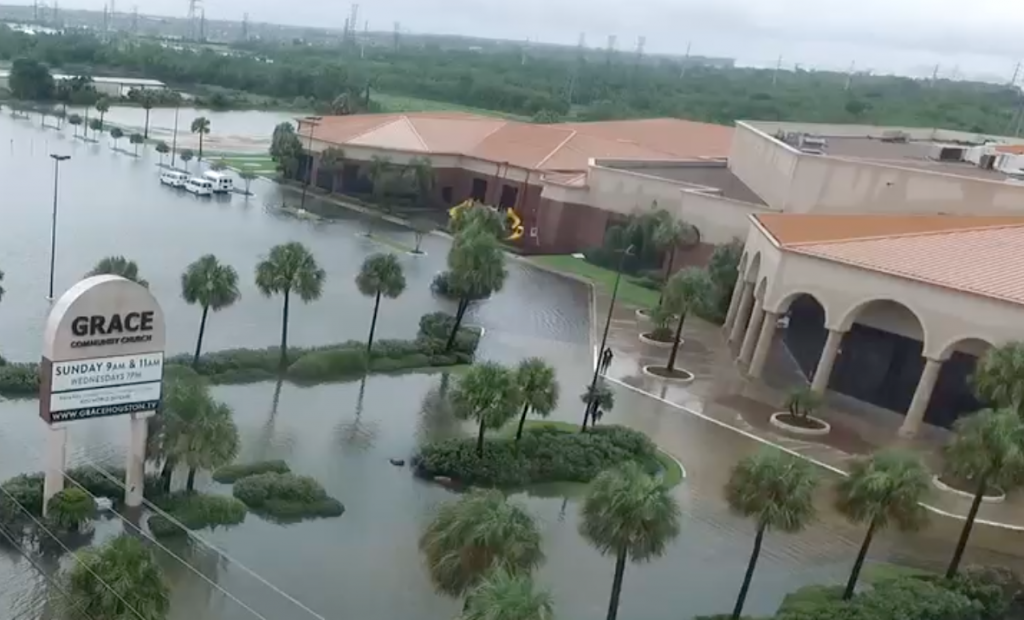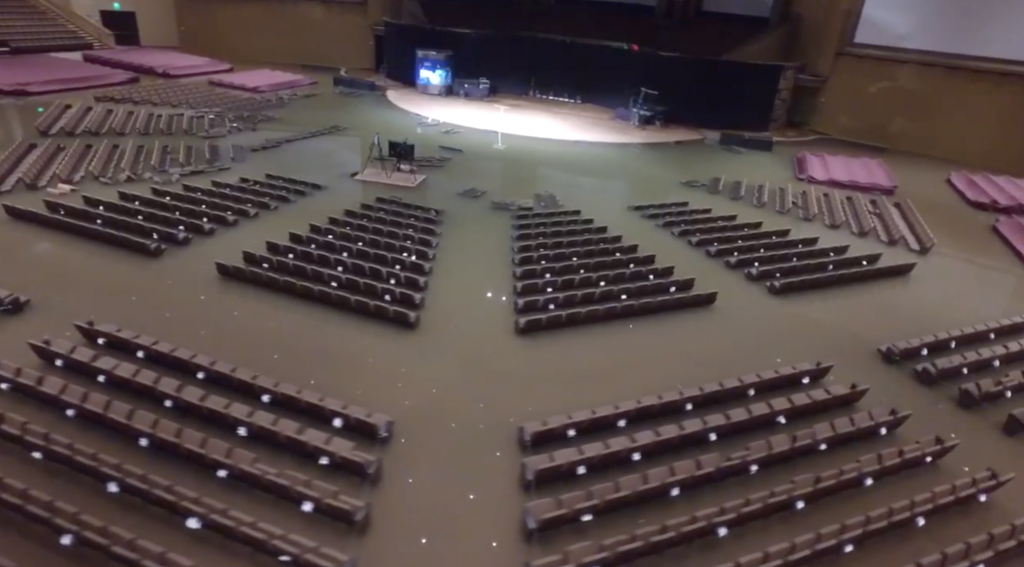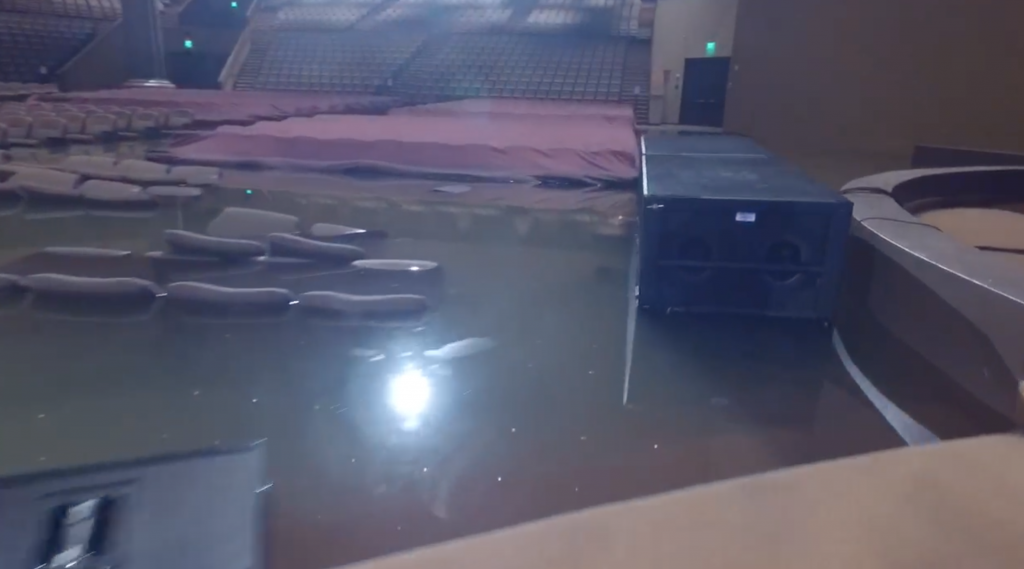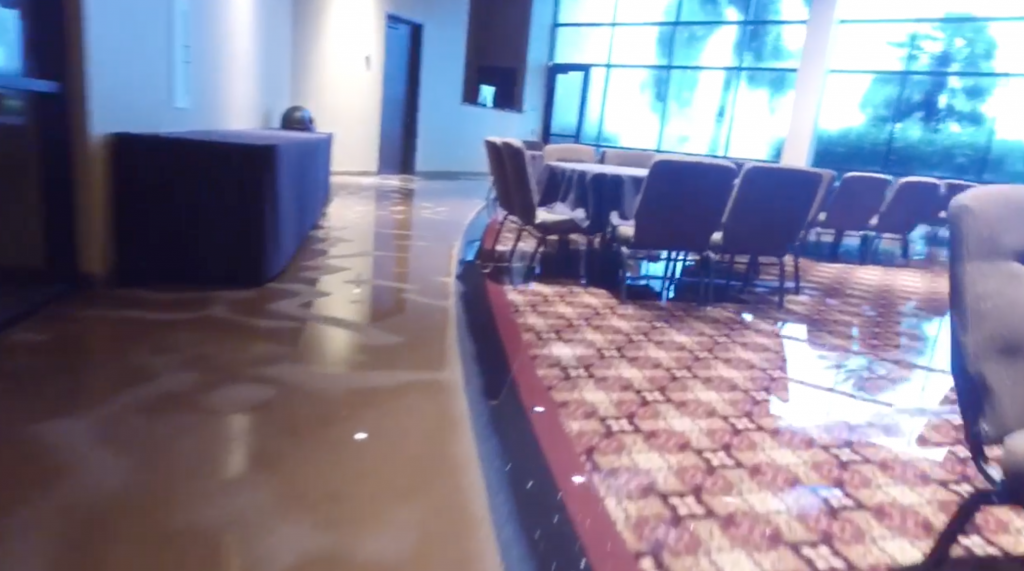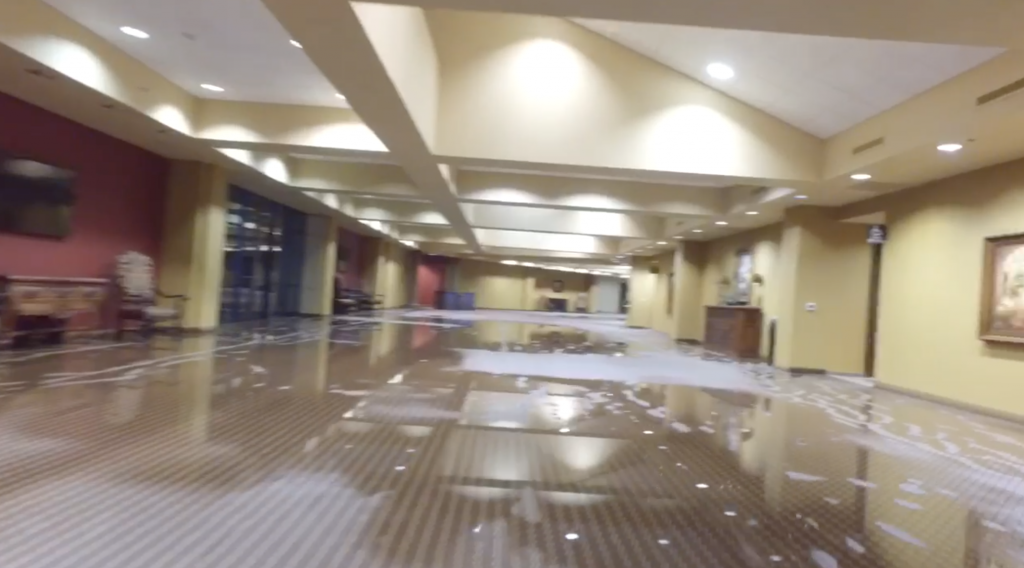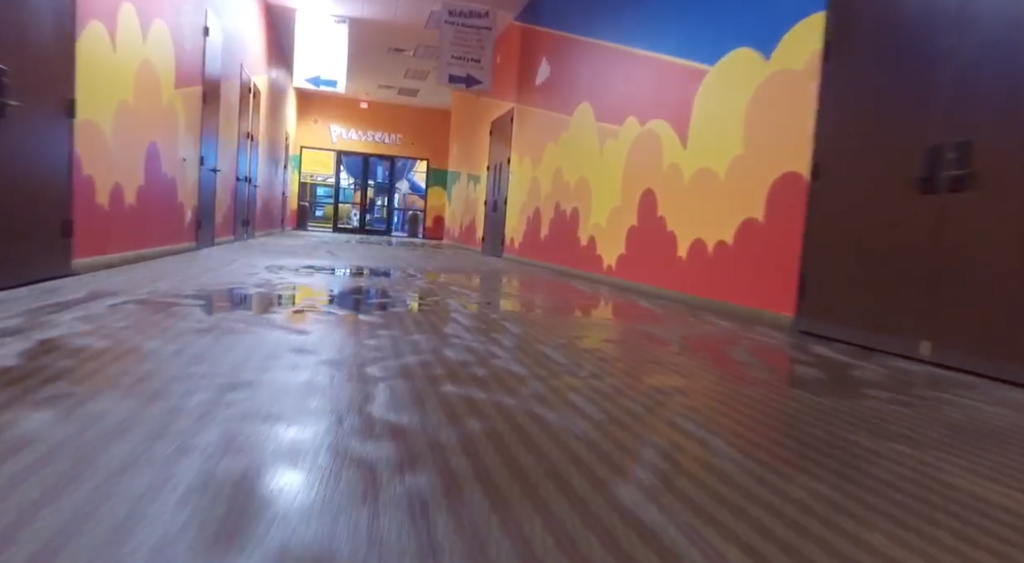In August 2017, Hurricane Harvey hit the area of Rockport, Texas as a Category 4 hurricane. It later weakened into a tropical storm, but hovered over southeast Texas and Louisiana for days, releasing record-breaking rain and trapping over 17,000 people in dangerous floodwaters. Thousands of homes were destroyed and 30,000 individuals were displaced. The fierce storm also caused 71 deaths and an estimated $200 billion in economic loss.
Hurricane Irma hit Florida in early September of 2017, causing millions of homes, businesses and other entities to lose power for days. As with Harvey, many homes and other buildings were wiped out, and 34 U.S. deaths have been confirmed.
Despite suffering crippling damage along with others in the community, houses of worship in both Texas and Florida immediately began providing vital assistance to the people in their local communities.
And their work is far from over.
“This is going to be a really, really long recovery,” Secretary of Energy and former Texas governor Rick Perry said after Harvey. “So the faith-based community may play one of the most important roles in this, long-term. And that’s what they’ve historically done.”
In the wake of Hurricane Harvey, President Donald Trump declared 39 Texas counties, including Harris and Jefferson Counties, eligible for federal disaster relief. Twenty-one counties in Florida were also cleared to receive FEMA assistance.
But there was a major problem. Even though First Liberty clients, Trinity Church, Church on the Rock Katy and Grace Community Church were directly affected by Hurricane Harvey, but because of FEMA’s Public Assistance Program and Policy Guide (PA Policy Guide), published and re-issued in previous administrations, including President Obama’s, these houses of worship were ineligible to receive aid purely because they are churches.
According to the PA Policy Guide, “[f]acilities established or primarily used for … religious … activities are not eligible” for FEMA aid. This ban on aid for religious entities is at odds with the Stafford Act, based on zero authority and in fact unconstitutional.
The PA Policy Guide misinterprets the Robert T. Stafford Disaster Relief and Emergency Assistance Act (Stafford Act), that mandates that the President must protect religious entities from discrimination when it comes to relief assistance. The U.S. Supreme Court dealt with this very issue earlier in 2017.
In Trinity Lutheran of Columbia, Inc. v. Comer, the Court sided with a Missouri church that had applied for assistance under a certain state program. Even though the church met all the necessary qualifications to receive the requested assistance, it was denied for being a religious entity.
The Supreme Court found in favor of the church, holding that the Free Exercise Clause of the Constitution’s First Amendment protects religious observers against unequal treatment by the government.
As in the case of Trinity Lutheran, Texas and Florida churches would have to give up their religious character in order to benefit from a public program, for which they are otherwise qualified, and from which their nonreligious neighbors are benefiting.
On September 20, 2017, First Liberty Institute sent a letter to FEMA administrator William B. “Brock” Long on behalf of their clients, Trinity Church, Church on the Rock Katy and Grace Community Church.
In the letter, First Liberty points out that the portion of the PA Policy Guide banning churches from assistance not only runs contrary to the Constitution and the Stafford Act, but to President Donald Trump’s own words and actions.
In the wake of Hurricanes Harvey and Irma, President Trump publicly declared that churches and religious organizations should be entitled to disaster relief on equal terms as non-religious organizations. And, First Liberty pointed out, with the stroke of a pen, the Trump Administration could make this a reality, providing much-needed disaster relief to hundreds of religious organizations—who themselves continue to provide relief to tens of thousands of affected citizens throughout Texas and Florida.
First Liberty asked FEMA to fulfill the President’s promises to protect religious freedom at the federal level and, among other things, correct the PA Policy Guide to make clear that houses of worship were eligible to receive federal disaster aid.
By January 2, 2018, FEMA announced that houses of worship, including those damaged in Hurricanes Harvey and Irma, would be eligible for federal disaster aid and that this change would be noted in the Trump administration’s next edition of the PA Policy Guide.
Press Release
For Immediate Release: January 2, 2018
Contact: Lacey McNiel, media@firstliberty.org
Direct: 972-941-4453
FEMA Ends Religious Discrimination Against Hurricane-Affected Houses of Worship
Trump administration announces houses of worship now eligible for FEMA relief following request from First Liberty clients
WASHINGTON, DC—Today, after First Liberty Institute sent a letter asking President Trump to end a discriminatory FEMA directive, the White House announced that it will end the religious ban and allow religious entities like churches, synagogues, mosques, and temples in hurricane-affected areas to apply for FEMA relief, consistent with federal law.
“Today’s announcement by the White House allows our clients to continue to be the bedrocks of their hurricane-ravaged communities,” said Chelsey Youman, Counsel for First Liberty. “Thanks to the Trump administration, thousands of houses of worship are again eligible for FEMA relief just like everyone else and can start the process of rebuilding.”
Despite an explicit nondiscrimination clause in the Robert T. Stafford Disaster Relief and Emergency Assistance Act (“Stafford Act,”)—Congressional legislation governing federal disaster relief—the FEMA maintained a “policy guide” declaring religious entities ineligible for FEMA assistance.
“I am speechless at the moment. This goes to show you that the faith community is an important component of society and being able to get help enables us to keep serving our community,” Pastor Jorge Cardenas, Church on the Rock Katy. “Thank God and also our President. We have to continue prayer for him because he has been very in touch with the faith community. ”
“It’s a great victory for equal protection and treatment of churches as valuable institutions as well as providers of critical services to the community in times of need,” said Dave Welch, Executive Director of the Houston Area Pastor Council.
To learn more, visit FirstLiberty.org/FEMA.
# # #
About First Liberty Institute
First Liberty Institute is a non-profit public interest law firm and the largest legal organization in the nation dedicated exclusively to defending religious freedom for all Americans.
To arrange an interview, contact Lacey McNiel at media@firstliberty.org or by calling 972-941-4453.
To download this press release, please click here.
09/20/2017 – First Liberty letter to FEMA Administrator William B. Long
Stafford Act Nondiscrimination Policy 42 USCS § 5151
FEMA Public Assistance Program Application Summary
Instructions for Applying for FEMA Public Assistance Texas
Request for Public Assistance (“RPA”) form
